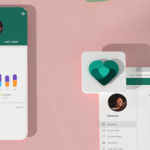Spotify has launched a new feature that allows you to connect with people in the times of home quarantine. Many other platforms are promoting their applications by bringing new features for getting more engagement from the users.
According to the Spotify blog, the new feature helps you connect with friends by launching a group party feature. This feature resembles the Facebook watch party feature where one person can stream on their device and viewers can join the party to watch the stream. This helps users stay in touch with their friends by doing engaging activities instead of just talking remotely.
This feature was announced in beta mode back in May this year. Since then, the company says they have added more featured for the group party for listening to your favorite playlist or podcast with your friends. One of the best things about this feature is that distance is not a barrier to use this feature. No matter how far you are, you can connect to the party if you have internet access to your device. You and your group can now listen to the same music or get the same information at the same time through the new feature.
The only thing to note here that this feature is only available for the premium users of Spotify. While it should be available for everyone, we have no idea why Spotify is just making it for premium users.
- Advertisement -
The feature currently supports 2 to 5 members which can be allotted on a single song/podcast party. You can easily create a party and invite your friends through sharing the link on your social media. All you need to do is click connect option on the bottom left corner and select “Start a group Session”. Your friends can also join using a join code which will be provided to the host of the session.
After starting a session, Spotify allows both the host and participants to play, pause, or change the song playing on the session. This can be quite irritating if you have a friend who likes to destroy these sessions. We hope Spotify brings a feature to enable restrictions for the participants.
Read more from MeshPie.


